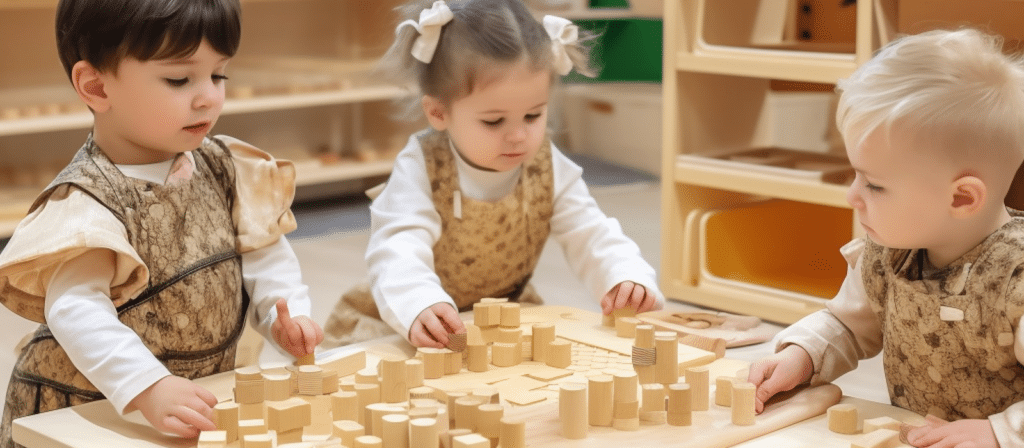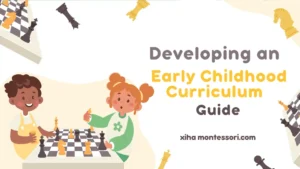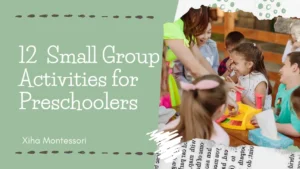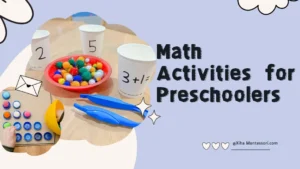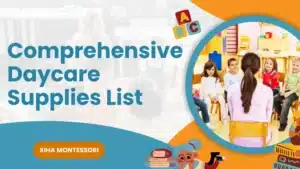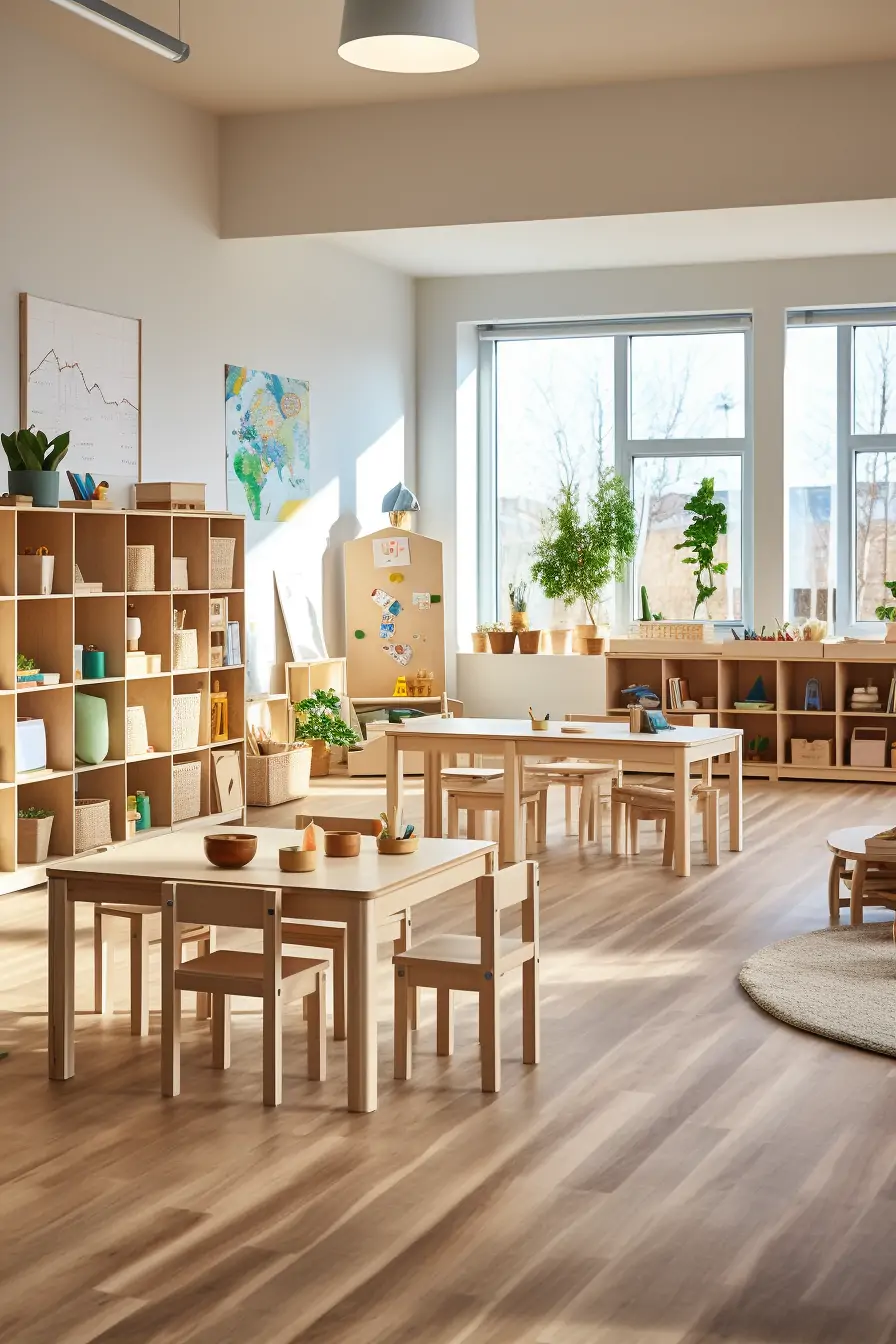As the world rapidly evolves, the young minds of today are poised to encounter a vastly different landscape as they mature into adults. This future realm will be brimming with novel information, advanced technology, and unprecedented predicaments. In order to navigate this transforming world effectively, children must cultivate skills such as creative thinking, adept communication, collaborative spirit, and problem-solving prowess. It is crucial to provide them with an environment that facilitates the acquisition of these essential abilities through meaningful and suitable experiences, ensuring their readiness to confront the multifaceted challenges of the 21st century.
Fostering a Culture of Creativity
Innovative thinking is the art of embracing diverse perspectives, adapting to shifting information, and devising distinctive and practical solutions to complex challenges. Nurturing creativity should permeate all aspects of a child’s daily encounters, woven into the very fabric of the curriculum. By instilling creativity in authentic situations and valuing it as a pivotal aptitude, we can cultivate and expand this skill. As our world gallops towards transformation, creative thinking becomes the linchpin for progress and survival.
Harnessing Early Creativity
The formative years of childhood are marked by an innate ability to manifest creativity through play, communication, and collaboration with peers. This development flourishes when children have the autonomy to choose activities, select materials from an array of options, and dedicate time to their projects. Experts who have scrutinized the trajectory of the future workforce have delineated “the 4Cs” as indispensable proficiencies. These include Creativity, Communication, Collaboration, and Critical Thinking. In a world where novel inventions continuously reshape professional landscapes, effective communication, collaborative endeavors, and innovative ideation become paramount. Confronted by new challenges bereft of instruction manuals, the onus falls on workers to unleash their resourcefulness, explore possibilities, and chart the optimal course. Rote memorization of facts falls short in this dynamic milieu of boundless possibilities and fluid solutions. Creative thinkers, however, thrive in this context. Armed with the ability to discern potential, conduct research, and critically evaluate ideas, they rise to the occasion.
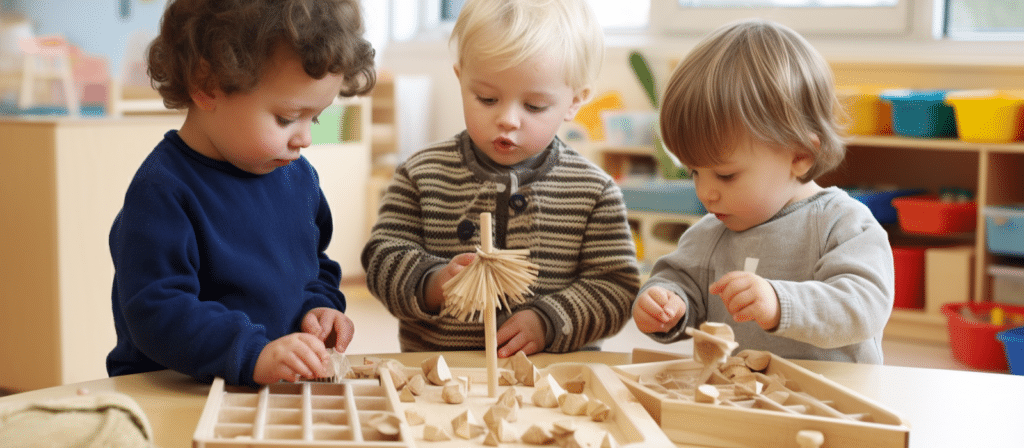
Interplay of Creativity with Communication, Collaboration, and Critical Thinking
Creative thinking has a profound ripple effect on other integral skills such as communication, collaboration, and critical thinking. In the developmental journey of a child, emphasizing the creative process over the final product is pivotal. A glance at a 4-year-old engrossed in painting attests to the importance of mixing paints, wielding brushes, and witnessing the transformation. These nuances outweigh the final appearance of the artwork hanging on the classroom wall. This exemplifies the young artist’s adaptability as her ideas evolve and methods shift during the creative process. This latitude for choice, idea exploration, and unhurried progress fosters components of creativity such as idea fluency, adaptability, and originality. These traits emerge vividly in young children and warrant encouragement as they immerse themselves in meaningful pursuits daily. When enveloped in an environment that esteems and nurtures these skills, young minds harbor the potential to flourish across all the facets of the 4Cs.
Cultivating an Atmosphere of Enabling Creativity
A conducive ecosystem for creativity, communication, and collaboration must be the cornerstone of daily interactive learning experiences. Each day should present young learners with the agency to engage in activities that kindle their interest. Learning centers, where children select their work area and materials, empower them to make choices. Project-based learning further amplifies this agency, enabling children to shape, evaluate, and problem-solve. Small group activities provide an ideal platform for fostering creative thinking, as each child wields greater influence over choices, contributes ideas, and collaborates for solutions. This progression in autonomy and communication naturally bolsters their creative capacities and independence.
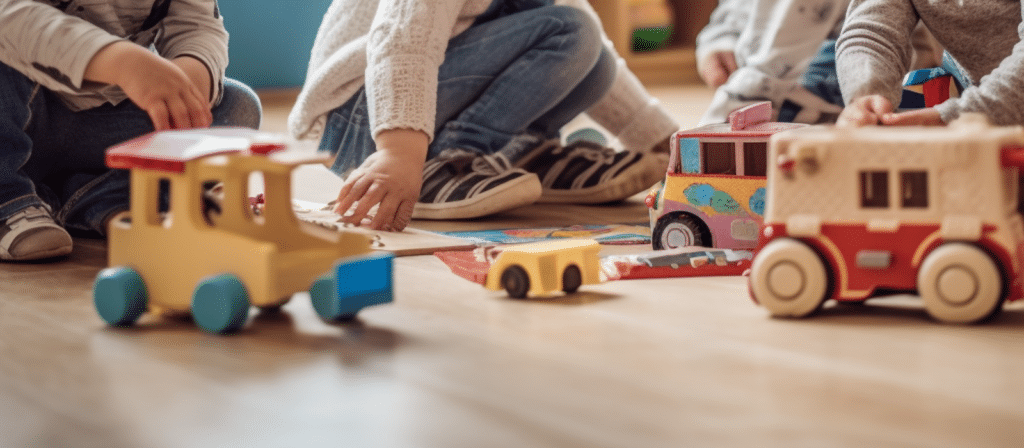
Nurturing Creative Educators
Central to the success of a quality early childhood classroom is the educator – a beacon of knowledge and responsiveness. Early childhood teachers wield creativity in their daily interactions with children, design of stimulating environments, and endorsement of young ideas. They exemplify qualities such as adaptability, experimental spirit, playfulness, and a sense of humor – all intrinsic to creative individuals. Yet, to nurture creativity in children, educators must recognize and support the ingredients that stoke the flames of young thinkers. It’s imperative for teachers to acknowledge and value the uniqueness of a child’s suggestions and choices, while also guiding them in planning and articulating their thoughts. Striking the delicate balance between offering support and enabling self-sufficiency is a nuanced challenge. Effective questioning or providing gentle support phrases can aid children in finding solutions while fostering resilience.
Conclusion
Modern early childhood education should be tailored to cultivate creative thinking, facilitate the expression of ideas, and engender experiences that bolster confidence in problem-solving skills. Nurturing collaboration through shared experiences is vital, alongside endorsing the worth and novelty of new concepts. If we sow the seeds of these skills early and nurture them as children mature, we gift them with tools that transcend time, equipping them for both the present and the future.

